- home
- our services
Our services
Our range of services is individually tailored to you.
Medical genetic analyses
Every person is unique and differs genetically from their fellow human beings. This can be seen in their appearance, special talents and personality, but also in their genetic predisposition to various diseases, such as tumors or cardiovascular diseases. If you know your genetic risk factors, in many cases you can actively contribute to preventing or delaying the onset of a disease or mitigating its progression through preventive measures.
Above all, environmental factors such as lifestyle, diet and exercise can have an influence on whether a genetic disease breaks out or the person affected remains healthy.
The results of a genetic test are therefore a guide to a health-conscious lifestyle. Early detection of genetic risk factors, e.g. risk of thrombosis, tumor risk, drug intolerance and timely intervention for prevention are therefore important for health promotion.
Diabetes analysis Assessment of personal risk with the diabetes test kit The diabetes test kit analyzes how high the individual risk of developing diabetes is and provides recommendations for prevention.
Genetic predisposition
Everyone has a different risk of developing type 2 diabetes mellitus. Although factors such as a poor diet and obesity have an influence, it is primarily our genetic predisposition that determines whether we develop type 2 diabetes in the course of our lives. A genetic analysis, which examines the relevant genes in this respect, can assess the actual risk in individual cases.
Function
With our diabetes test kit, our laboratory examines the saliva sample sent in for 9 researched gene variations that can promote the development of type 2 diabetes mellitus. We also test the tolerability and efficacy of 36 relevant medications based on the genetic profile. This genetic test enables us to determine the likelihood of developing type 2 diabetes and whether preventive measures are necessary. Our experts evaluate the results of the analysis in a comprehensive report that provides specific dietary recommendations to prevent diabetes. In this way, you can contribute to preventive healthcare and help yourself to reduce the increased risk of diabetes by adapting your lifestyle.
Diabetes test kit
- Analysis of the 9 gene variants associated with diabetes
- Assessment of personal diabetes risk
- Compatibility testing of 36 common medications
- Reliable testing in our laboratory
- Detailed evaluation of the test results
- Individual recommendations for the prevention of diabetes
The gluten test kit analyzes the genetic risk of gluten intolerance and recommends preventive measures.
Gluten
Gluten is a cereal protein that is found in many foods. Gluten intolerance (coeliac disease) is an increasingly common food intolerance, which is estimated to affect around one percent of the population in Europe. In principle, it can develop at any age, but is usually particularly aggressive in two phases of life: the first phase often occurs in infancy during the transition from milk to solid food, the second then develops around the 4th decade of life. It is noticeable that women are more frequently affected than men. The symptoms are digestive complaints such as diarrhea, flatulence and stomach pain or cramps or occasional vomiting. Other symptoms include fatigue, a general feeling of illness, iron deficiency and even anemia, muscle and joint pain, loss of appetite and weight loss. In young children, gluten intolerance can also lead to growth disorders and an itchy skin rash with blisters. Gluten intolerance is rarely diagnosed correctly.
Gluten intolerance
In 95% of cases, two inherited genetic variations favor the development of gluten intolerance. They are involved in the function of the immune system and, in their mutated form, can trigger an immune reaction against gluten in the intestine, similar to the way it fights a bacterial infection. The resulting chronic inflammation damages the intestinal villi, preventing important nutrients from being properly absorbed and causing vitamin and mineral deficiencies. Without an adapted diet, the risk of bowel cancer even increases in the long term and concomitant diseases such as type 1 diabetes mellitus, anemia and osteoporosis as well as lactose intolerance as a secondary disease occur more frequently. Although gluten intolerance cannot be cured according to current medical knowledge, the intestinal mucosa can usually be regenerated and symptoms usually disappear completely with the help of a lifelong gluten-free diet and, if necessary, appropriate food supplements. If gluten intolerance is suspected, this genetic analysis is therefore extremely valuable in order to avoid further symptoms and prevent particularly serious secondary diseases.
Function
Our laboratory tests the saliva sample sent in for the two genetic variations associated with the development of gluten intolerance. This genetic test enables us to determine how likely a gluten intolerance is and whether a corresponding change in diet is necessary. Our experts evaluate and summarize the analysis report, which provides specific recommendations for action to counteract any symptoms at an early stage. Through early detection and prevention, coeliac disease and the resulting damage to health can be averted.
Gluten test kit
- Analysis of the 2 gene variants relevant for coeliac disease
- Assessment of the personal risk of gluten intolerance
- Reliable testing in our laboratory
- Comprehensive evaluation of the test results
- Dietary recommendations for a symptom-free diet
Detect and treat lactose intolerance with the lactose test kit The lactose test kit analyzes whether a genetic lactose intolerance is present.
The lactose contained in milk is broken down in the intestine by the enzyme lactase so that it can be absorbed into the bloodstream in the form of glucose and galactose. This enzyme is produced in the intestine from infancy because newborns depend on it to be able to utilize and digest breast milk. As children get older, their bodies prepare to digest other foods and the genes responsible for producing the enzyme are gradually switched off. Some people have a genetic mutation that produces a severely impaired enzyme and ultimately makes lactose completely intolerable for them. Unutilized lactose is an excellent source of nutrients for intestinal bacteria, which multiply rapidly and ferment the sugar into fatty, lactic and acetic acids as well as various gases. This process leads to a number of different symptoms, which can vary in severity from person to person. Symptoms include digestive problems such as flatulence, cramps, nausea and diarrhea as well as a number of non-specific complaints such as fatigue or skin problems.
Treatment for lactose intolerance is based on a lactose-free diet, which can achieve complete freedom from symptoms. Unfortunately, lactose intolerance is often not correctly diagnosed for years and digestive upsets are misinterpreted. This is why a genetic analysis to determine a possible lactose intolerance is helpful to clarify a personal intolerance and avoid subsequent complications.
Function
Our laboratory examines the saliva sample sent in for a gene variant that can trigger lactose intolerance. We also check whether the body can absorb sufficient calcium from food. This genetic test enables us to determine how likely lactose intolerance is and whether a corresponding change in diet is necessary. Our experts evaluate the results of the analysis in a written report, which also provides individual recommendations for action. The aim is to detect a possible lactose intolerance at an early stage and avoid subsequent symptoms.
Lactose test kit
- Analysis of the genetic variation relevant for lactose intolerance
- Assessment of the personal risk of lactose intolerance
- Reliable testing in our laboratory
- Evaluation of the test results in a report
- Individual recommendations for a symptom-free diet
Effect of medication
Ideally, a medication helps to alleviate the symptoms of an illness or even cure the patient. However, everyone reacts differently to medication! While some people derive significant benefits from drug treatment, others may experience undesirable side effects and in some cases these can even be fatal.
Delayed breakdown of medication
Whether different people tolerate a drug or experience unwanted side effects depends on their genes. This is because a number of gene mutations can cause drugs to be broken down more slowly and therefore not work properly or even lead to intolerance. A single dose does not cause any problems, but if the medication is taken three times a day, the concentration in the blood continues to rise until serious side effects occur.
Function
Our laboratory tests the saliva sample sent in for over 70 genetic variations that can affect the efficacy and tolerability of medicines. Based on a patient’s genetic profile, this genetic test makes it possible to evaluate more than 2,000 commonly used drugs with regard to their efficacy potential and possible intolerances. Our experts evaluate the analysis report and provide dosage recommendations for successful therapy based on the defined degradation, activation and conversion rate of each drug. Reduce the risk of side effects and have incompatible medications identified for you.
Drug test kit
- Analysis of more than 70 relevant gene variant
- Individual compatibility testing of over 2,000 medications
- Reliable testing in our laboratory
- Comprehensive evaluation of all test results
- Dose recommendations to minimize the risk of side effects
The cardiovascular test kit analyzes how high your individual risk of cardiovascular disease is and recommends preventive measures.
Heart & blood vessels
In addition to the risk factors of old age, obesity, high blood pressure (arterial hypertension) and an elevated cholesterol level (hypercholesterolemia), our genetic predisposition is also important for the development of cardiovascular diseases. Some genetic mutations can significantly increase the risk of cardiovascular disease. An appropriate test of the relevant genes in this respect can detect a possible risk at an early stage and initiate preventive measures in good time.
Function
Our laboratory analyzes the submitted saliva sample for more than 18 different gene variants that are associated with the development of cardiovascular diseases. We also examine the extent to which the genetic profile affects the efficacy of 150 relevant drugs. Our experts summarize the analysis report for you, which also provides individual recommendations for effective prevention in the form of an appropriate micronutrient intake and dietary changes.
CARDIOVASCULAR test kit
- Analysis of over 18 relevant genetic variations
- Assessment of the personal risk of cardiovascular disease
- Efficacy testing of 150 commonly used medications
- Reliable testing in our laboratory
- Comprehensive evaluation of the analysis results
- Recommendations for the prevention of cardiovascular diseases
The skin health test kit analyzes how high the genetic risk of skin cancer is and recommends preventive measures.
Early detection
Skin cancer covers various malignant skin diseases. The best-known forms are white skin cancer (basal cell/spiny cell carcinoma) and the much more dangerous black skin cancer (malignant melanoma). In the case of black skin cancer, for example, a dark, irregular, flat or nodular patch of skin may appear; in the case of basal cell cancer, a waxy nodule, which alternately bleeds and heals, or dark ulcers may develop. We recommend preventive examinations in order to diagnose skin cancer in good time and initiate any necessary treatment. Depending on the type and stage of the disease, radiotherapy, chemotherapy, photodynamic therapy or immunotherapy are used as an alternative or in addition to surgery as a standard treatment.
Influence Factors
Excessive UV radiation is a primary trigger for skin cancer. Other risk factors include chemicals and, in rare forms of skin cancer (such as Kaposi’s sarcoma), viral infections. Additionally, genetic factors also play a significant role in an individual’s risk of developing skin cancer. Therefore, an analysis of relevant genetic variations in this regard can help prevent skin cancer.
Function
With our Skin Health Test Kit, our laboratory examines the saliva sample submitted for 18 genetic variants that may predispose to the development of white or black skin cancer. The goal is to assess the risk of skin cancer and examine the influence of the genetic profile on the effectiveness of 50 commonly used medications.
Skin Health Test Kit
- Analysis of 18 relevant genetic variations
- Assessment of genetically determined skin cancer risk
- Evaluation of the effectiveness of 50 medications based on genetic profile
- Reliable examination in our laboratory
- Written evaluation of results
- Individual recommendations for prevention
Exome sequencing, or WES (Whole Exome Sequencing), is an advanced genomic technique that enables sequencing of the protein-coding regions of the genome, known as exomes. This powerful tool can be used for a variety of purposes, from population genetics studies to the investigation of genetic diseases and even cancer patients. Although the exome constitutes less than 2% of the total genome, it contains an astonishing 85% of known disease-causing mutations. As a result, it is a more cost-effective approach than sequencing the entire genome. WES is an extremely valuable tool for any research study in the field of genetics.
Whole Genome Sequencing (WGS)
Whole Genome Sequencing (WGS) involves examining and sequencing the entire set of 20,000 human genes. This includes both protein-coding and non-coding regions, enabling the discovery of almost all mutations present in the human genome. This includes single nucleotide polymorphisms (SNPs), insertions and deletions (InDels), structural variations (SVs), and copy number variations (CNVs). Therefore, WGS is an effective tool for gaining insights into the genome and identifying potentially consequential mutations.
RNA Sequencing (RNA-Seq)
RNA sequencing (RNA-Seq) provides a powerful means of examining the transcriptome of a biological sample – the total amount of RNA molecules expressed at a particular time. With this technique, researchers can identify and quantify specific RNA populations such as messenger RNA (mRNA), long non-coding RNA (lncRNA), and short non-coding RNA (e.g., miRNA, tRNA). This enables researchers to uncover gene expression patterns and post-transcriptional changes across different conditions, groups, or time points. Furthermore, RNA-Seq can detect alternative splicing, novel transcripts, mutations, and gene fusions, allowing for a more comprehensive understanding of RNA biology and disease development.
Metagenomic Sequencing
Metagenomic sequencing is a powerful tool that provides a comprehensive view of the entire DNA content of a biological sample. By examining bacterial, viral, fungal, parasite, and host DNA, we obtain an informative picture of the sample’s microbiome. Moreover, it is capable of detecting an unlimited number of pathogens and even antibiotic resistance genes that may be overlooked in conventional PCR-based diagnostics. With metagenomic sequencing, researchers can identify and monitor a wide range of pathogens and the resistome, making it a valuable tool in the fight against the spread of antibiotic resistance.
Non-medical genetic analyses
Cell Renewal
Because most cells in the human body have a limited lifespan, they need to be replaced regularly. For example, intestinal cells, which have a lifespan of only two days, require frequent replacement. In contrast, skin cells have a lifespan of approximately 20 days. Cell renewal occurs independently through division, with the chromosomes, which store our genetic code, needing to be completely duplicated each time.
Aging Process – Cell Renewal
Because most cells in the human body have a limited lifespan, they need to be regularly replaced. For example, intestinal cells, which have a lifespan of only two days, require frequent replacement. In contrast, skin cells have a lifespan of approximately 20 days.
People Age at Different Rates
In particular, the body’s own enzyme telomerase can slow down, prevent, or even reverse the shortening of our telomeres. However, artificially supplementing telomerase through anti-aging creams, supplements, or dietary supplements carries the risk of promoting uncontrolled cell growth and cancer formation. In addition to our genetic predisposition, lifestyle also plays an important role in telomere shortening. For example, smoking, UV radiation, chemicals, an unbalanced diet, long-term stress, and chronic sleep deprivation accelerate cell aging, while regular exercise, fresh whole foods, and the use of relaxation techniques can be beneficial for our telomeres.
Microscopically, our chromosomes have the shape of an X, with their ends also called telomeres. Telomeres form the protective caps of our chromosomes and prevent fraying of our genetic material. With each cell division, our telomeres shorten a little, until eventually they reach a critical length, causing the affected cell to no longer be functional or capable of division and to die.
We refer to this process as aging. However, the increasing degeneration of telomeres and the associated aging process occur at different rates depending on genetic predisposition. In particular, the body’s own enzyme telomerase can slow down, prevent, or even reverse the shortening of our telomeres. However, artificially supplementing telomerase through anti-aging creams, supplements, or dietary supplements carries the risk of promoting uncontrolled cell growth and cancer formation.
In addition to our genetic predisposition, lifestyle also plays an important role in telomere shortening. For example, smoking, UV radiation, chemicals, an unbalanced diet, long-term stress, and chronic sleep deprivation accelerate cell aging, while regular exercise, fresh whole foods, and the use of relaxation techniques can be beneficial for our telomeres.
Function
With our Beauty Test Kit, our laboratory analyzes the saliva sample submitted for those genes associated with the length of your telomeres. In this context, we can determine whether the genetic ability for telomere lengthening is present and which measures are helpful in individual cases to slow down degeneration. We evaluate the analysis results and provide, among other things, individual recommendations for reducing biological aging.
Beauty Test Kit
- Analysis of genes associated with the aging process
- Assessment of genetic ability to slow down aging
- Reliable examination in our laboratory
- Comprehensive evaluation of all test results
- Individual recommendations for reducing biological aging
An unhealthy diet, inadequate skincare, and excessive UV exposure have negative effects on skin appearance and accelerate aging. Over 20 different genetic variations have been described to affect more than eight different factors of skin aging. Our Beauty Sensor Genetic Test can identify your personal predispositions, enabling you to actively combat skin aging.
We analyze collagen production, collagen breakdown, UV protection, skin moisture, and the effects of oxidative stress. Additionally, we assess the effectiveness of Q10, your individual selenium requirements, potential damage from genetically-induced inflammatory reactions, and your biological age.
Result: The Beauty Sensor helps you improve your skin appearance and delay the genetically-driven aging process of your skin!
Each of us carries different genetic variations. Genetic differences have a significant impact on how our bodies metabolize the nutrients we consume and which nutrients contribute to body fat accumulation. Our own genes strongly influence whether fats or carbohydrates lead to overweight, whether endurance or strength training is particularly effective, or whether calorie reduction leads to faster results. It is advisable to align with genes relevant to body weight. This way, it is possible to precisely determine what matters when it comes to planning the diet and accompanying exercise program.
How does the gene diet work?
As a first step, we require a saliva sample from you. Upon arrival at our laboratory, the genes are extracted, and the corresponding gene segments are examined for variations. Our scientists then analyze the genetic profile and compile a program tailored to the individual genetic predisposition. The report provides specific recommendations for customizing the diet plan and helps to find the right balance between exercise and nutrition. Also included is a list of over 1000 foods evaluated based on genes. This enables the implementation of dietary recommendations to reduce body fat levels sustainably and improve health and quality of life without unnecessary effort.
Nutritional Recommendations
General dietary recommendations cannot address individual predispositions and needs. What is healthy for one person may have the opposite effect for another, possibly even contributing to the development of diseases. The cause of these individual differences lies in the genes.
Optimal Nutrition through Nutrigenetics
Research has shown how numerous genetic variations can influence the body and how the body reacts to specific nutrients or food ingredients. Some known metabolic issues include lactose or gluten intolerances. Nutrigenetics allows for the optimization of individual nutrition based on the analysis of nutrition-related genes. Whether a particular food or ingredient is healthy for someone must always consider the overall picture. For some genetic metabolic disorders, calcium-rich dairy products are very healthy for the body, while milk may be unhealthy for others with genetic metabolic issues. In such cases, other foods with a high calcium content are chosen to address a metabolic issue without triggering another problem.
Additionally, there may be unfavorable genetic variations that limit the detoxification of heavy metals such as lead, leading to heavy metal poisoning. Such genetic analysis can help identify potential metabolic issues and improve your health.
Function
Our laboratory examines the saliva sample submitted for more than 50 genetic variations and their effects on around 20 common metabolic disorders. Your individual strengths and weaknesses regarding the utilization of various nutrients are analyzed. The analysis provides detailed information on where variations in nutrition-related genes could lead to problems and how they should be assessed overall. Based on the examination results, we provide recommendations for more than 900 foods. The goal is to tailor the diet to individual health conditions.
NutriScore Test Kit
- Comprehensive analysis of over 50 nutrition-related genes
- Examination of the effects of gene variations on common metabolic issues
- Reliable examination in our laboratory
- Detailed evaluation of analysis results in a report
- Individual recommendations for healthy nutrition
The Performance Sensor provides insights into how performance can be enhanced based on individual genes.
Peak Athletic Performance
The Performance Analysis is the essential biomarker panel recommended by Una Diagnostik, which every athlete should undergo at least once a year. Optimize your unique biochemistry with insightful findings and a personalized plan. This test is recommended if you’re an athlete, training for a competition, looking to lose weight, aiming to improve your fitness performance, or taking control of your health and well-being. The biomarkers in this test contribute to many aspects of overall health and well-being.
Biomarkers
Muscle health, whether for athletes, mothers, or aging adults, plays a role in strength, endurance, sleep, and the risk of injuries or illnesses. Skeletal and muscle health is an important system that should be considered in younger years because bones and muscles are closely linked to health and well-being, and their density and composition generally decline with age. It may be surprising how many blood biomarkers play a role in muscle function and recovery. The immune system must work every day to defend against the toxins and pathogens it encounters daily. Similarly, red blood cells must work daily to transport oxygen to all muscles, tissues, and organs in the body. Overall health and well-being depend on many biomarkers that rarely show symptoms to alert you that they are not functioning normally.
Genes & Athletic Performance
Determining your health and well-being based solely on your appearance or feelings is extremely difficult. Annual blood tests help establish a baseline that can be tracked throughout life and optimized at every stage of life, including before, during, and after the onset of symptoms or treatment of a chronic illness. The Performance Analysis is more comprehensive than the average annual blood test and provides a detailed analysis of your metabolism, inflammation levels, hormone balance, and nutrient status, as well as the effects of your diet, exercise, and daily habits on your body systems and organs.
Nutrient Deficiency
Every athletic activity carries a potential risk of injury, including overuse injuries, pain, and accidents, with those participating in contact sports being the most vulnerable. But you don’t have to be an athlete to reduce your risk of injury in everyday life. Minimizing inflammatory biomarkers and optimizing hormone levels through knowledge of these biomarkers is a good start:
Risk of Chronic Diseases
Age is a major risk factor that increases the risk of several chronic diseases: dementia, heart disease, type 2 diabetes, arthritis, and cancer. Discover early on which biomarkers increase your risk of chronic diseases and how you can modify them.
How the Performance Analysis Works
With the Performance Test Kit, our laboratory conducts a comprehensive genetic analysis. Over 20 genetic variations associated with individual performance are examined in the submitted sample. After the tests are successfully completed, we summarize our findings in a detailed written report. In addition to the genetic analysis, which covers topics such as muscle fiber type, prevention, and nutrition, our report includes recommendations to improve personal performance. In this way, our Performance Test Kit can effectively help achieve peak performance in training and simultaneously reduce the risk of injuries.
Performance Test Kit
- Analysis of over 20 relevant genetic variations
- Reliable examination in our laboratory
- Written evaluation of test results
- Determination of muscle fiber type
- Tips for injury prevention
- Recommendations for optimal nutrition
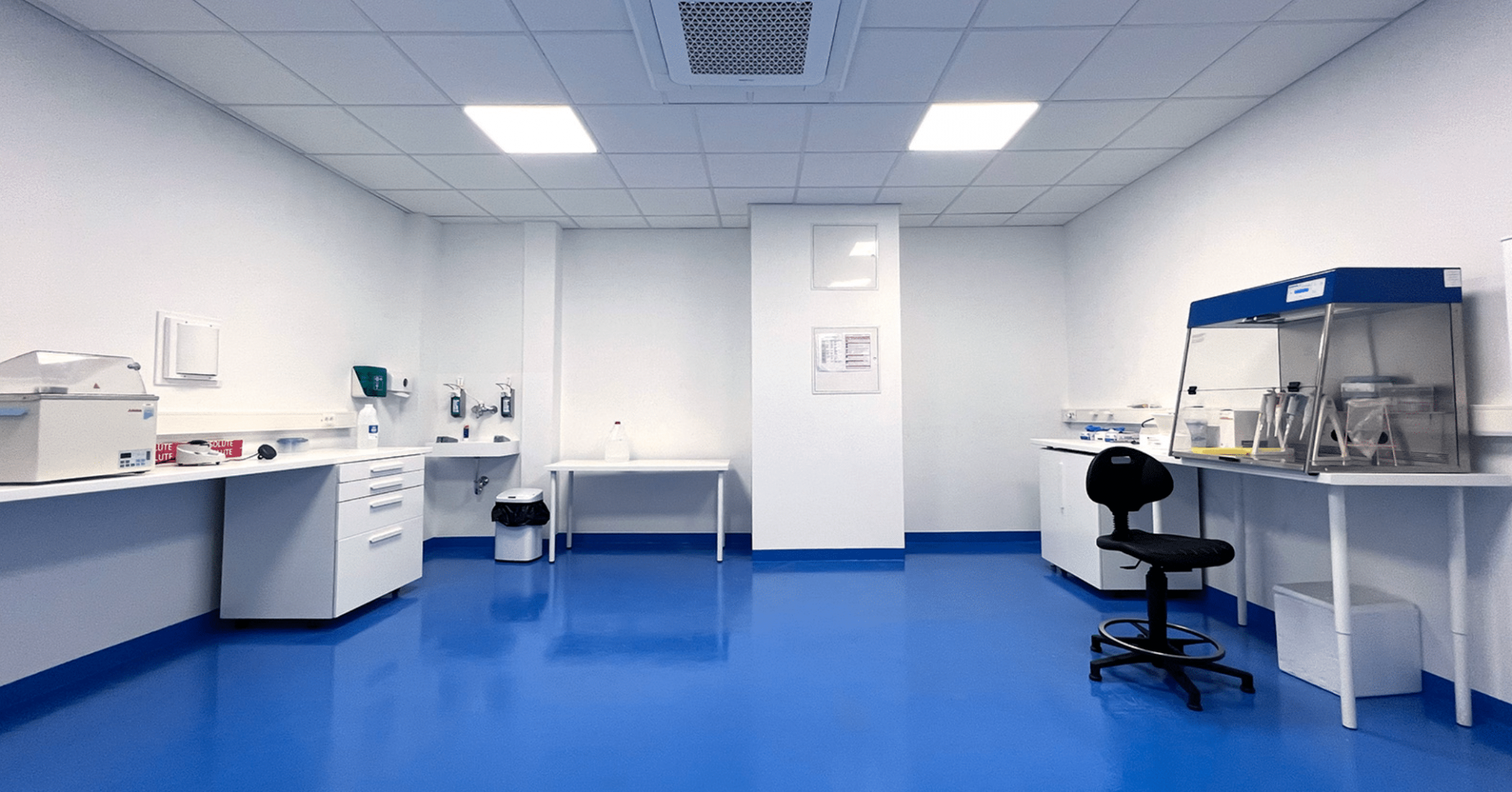
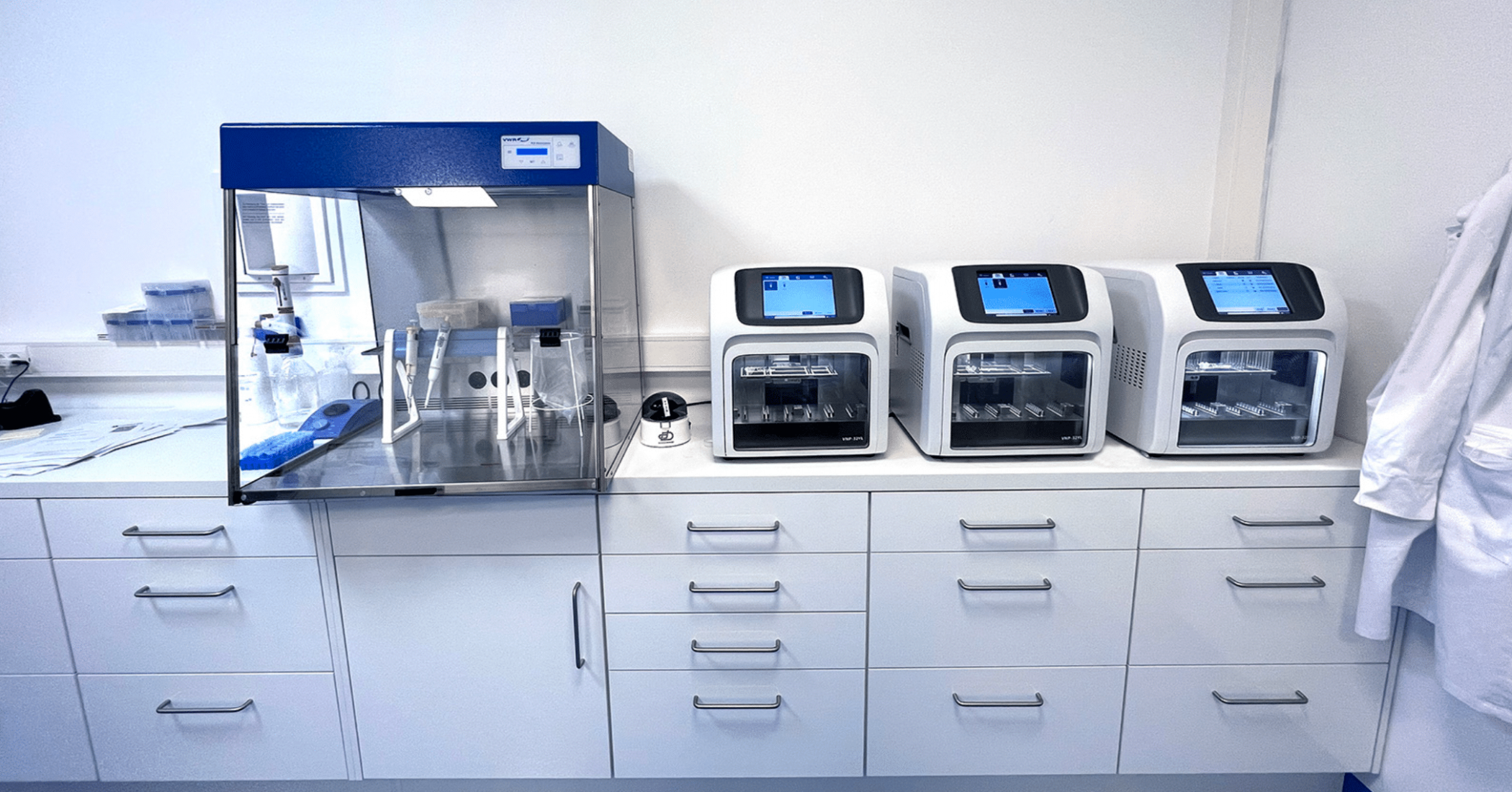
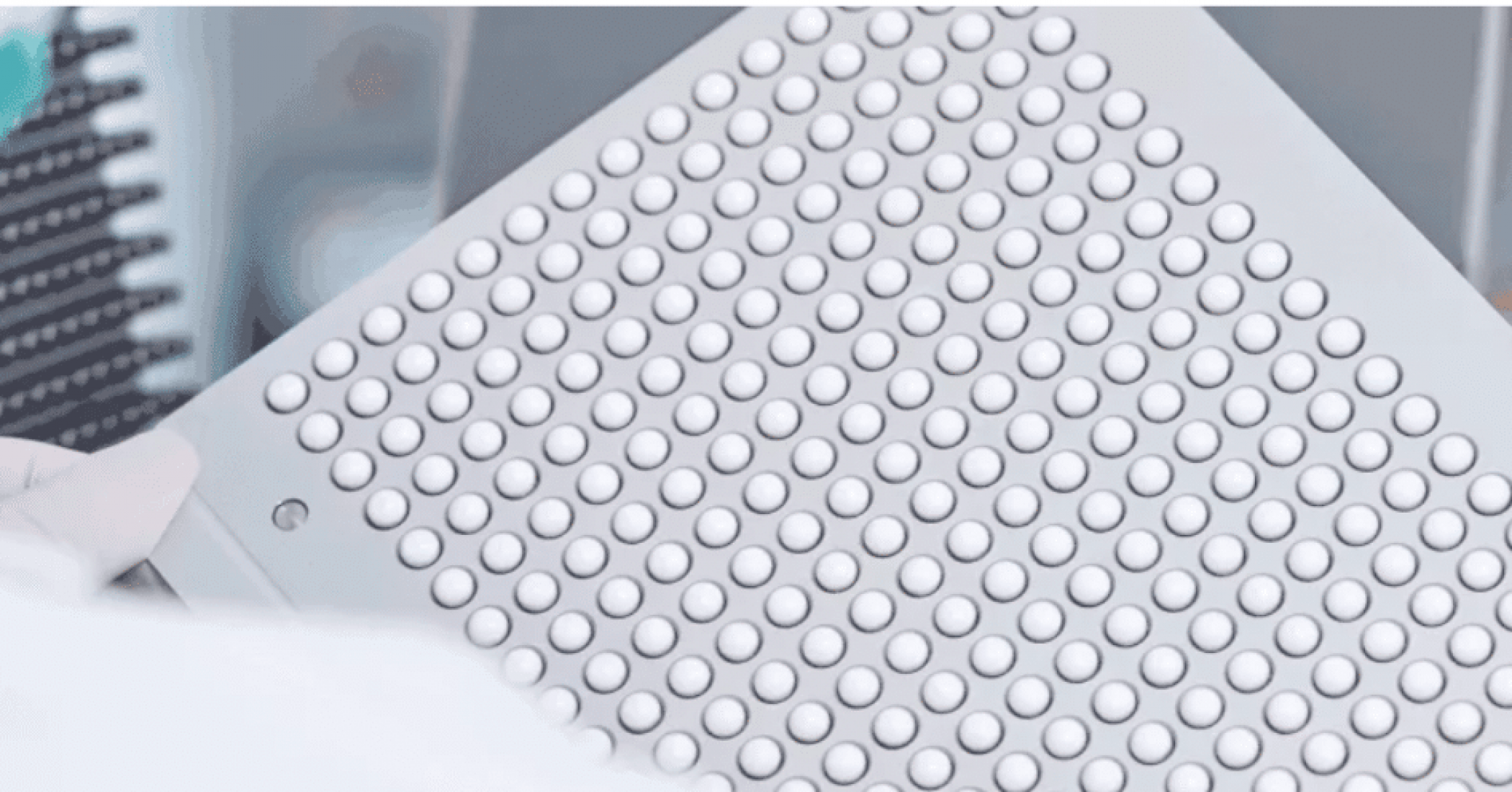

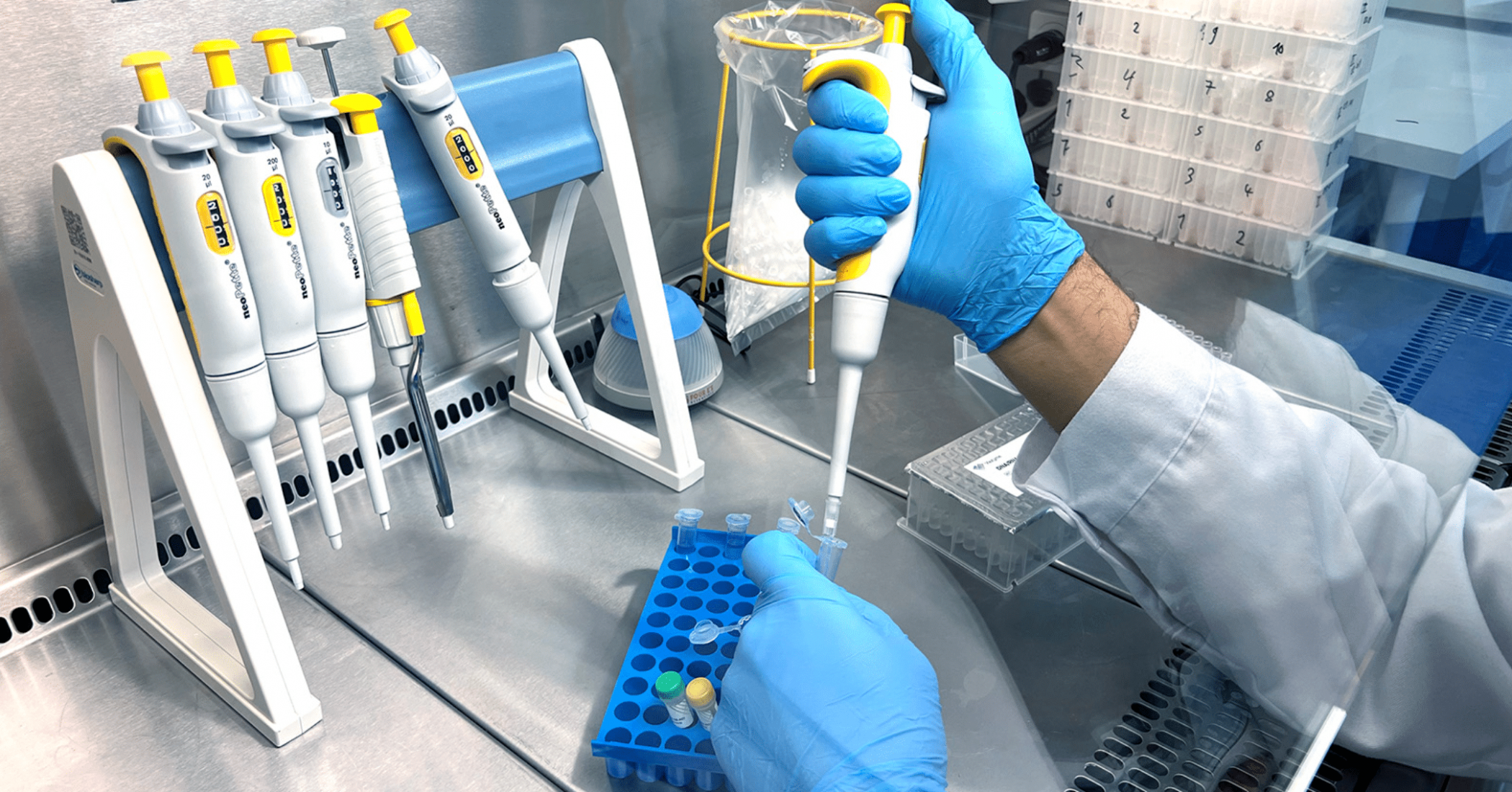
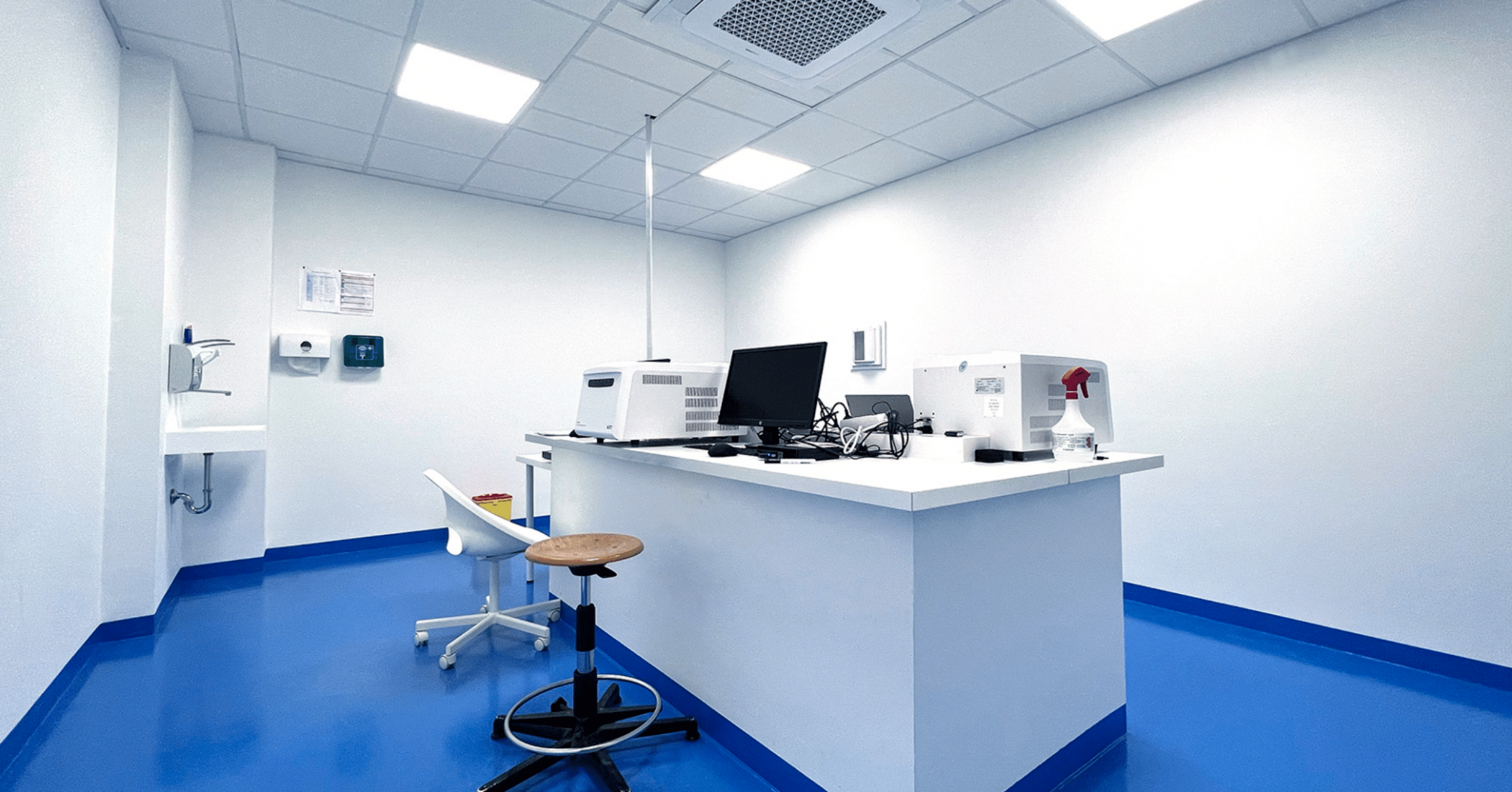
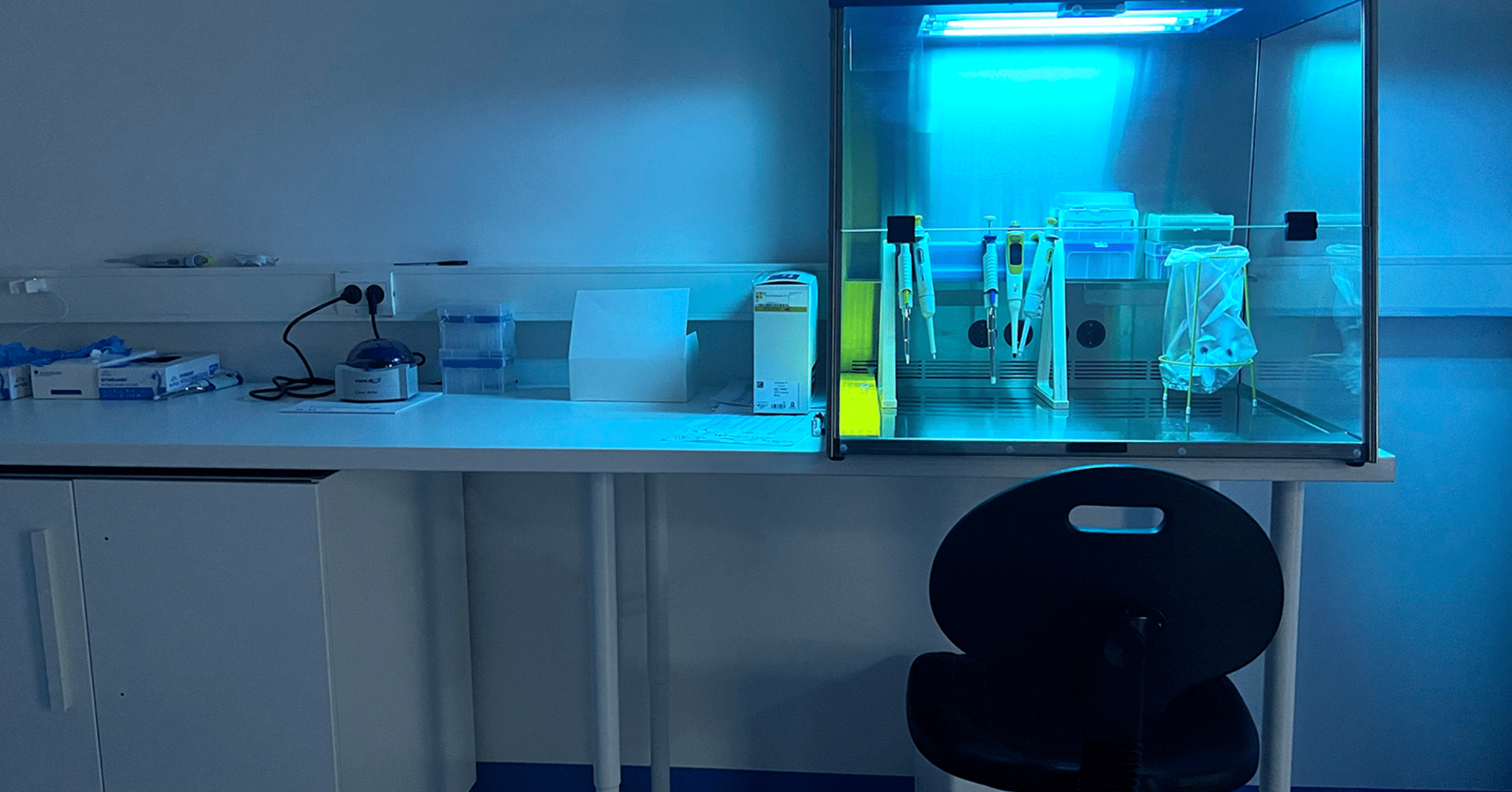

UNA is Latin and means the unique one.


Would you like to become a partner?
- Safety: We carry out all genetic tests to the highest quality standards and in compliance with all safety aspects.
- Hygiene: We have introduced the highest hygiene guidelines and work in accordance with DIN EN ISO 15189.
- Reliable sample logistics
- Hi Tech equipment
- Qualified employees
- As a partner, you are not left alone! Supporting our partners is our top priority!
- Medical practices – Clinics
- pharmacies
- drugstores
- fitness studios
- Personal trainers
- Nutritionists
- alternative practitioners
- Insurance companies
- Beauty salons
- Self-employed persons from the health professions
